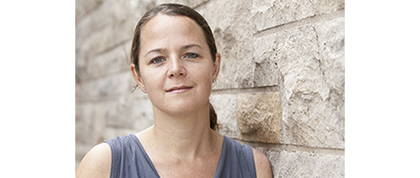
Dr. Karen Yeates, GPH Visiting Associate Professor and a kidney specialist from Queen’s University in Canada, reports from the International Society of Nephrology’s Second Global Kidney Summit March 18-20, 2018 in the United Arab Emirates
Pictured Above: Dr. Karen Yeates
Dear Colleagues and Students,
I’ve just flown to Kilimanjaro, Tanzania from a meeting in the UAE of the International Society of Nephrology, with kidney health experts from around the world. The purpose was to develop guidelines improving kidney care and access to treatment globally, with a strong emphasis on low- and middle-income countries (LMICs). Draft consensus statements were prepared for use by the World Health Organization on topics such as universal access to dialysis; supportive care for people who cannot access dialysis; minimal and optimal safety and quality standards for dialysis care in LMICs, and ethical principles surrounding end-stage kidney disease care.
We are facing a tsunami of non-communicable diseases (NCDs) in many countries that lack the strong health systems, resources, and capacity among health professionals to tackle the large numbers who are developing kidney failure due to years of untreated diseases such as high blood pressure and diabetes. As many of you know, this is one of the unfortunate outcomes of development: when incomes rise in countries that have traditionally faced significant disadvantage, rapid demographic shifts lead to rapid increases in heart disease and stroke, and to an epidemic of chronic kidney disease.
End-stage kidney failure is almost uniformly a “death sentence” for most individuals in low-resource countries if they and their families do not have the resources to afford thrice-weekly dialysis treatments that typically cost more than a month’s salary. It’s estimated that approximately 500,000 people develop end-stage kidney disease annually in Africa, and this results in a rapid progression to death where no sustainable program for kidney dialysis exists. When a program does exist, it’s not typically funded by the government/public health system, so the majority of individuals have limited access due to financial constraints.
I was recently invited to NYU Accra to discuss the crisis that individuals, their families and their health providers were facing in Ghana due to a lack of affordable and sustainable dialysis treatments. The one-day symposium of civil society groups, patients, families and health providers met to discuss ways to increase advocacy for patients and to come up with a consensus “pathway” on how to lobby the government to take action. The human suffering is punctuated by a huge financial cost that families endure to keep their loved ones alive, only to run out of resources and leave the next generation bankrupt. It was a discussion of a very real existential crisis, with no concrete solutions in the immediate future.
I spend most of my “clinical” work life managing chronic kidney disease in Canada among patients who have very good access to a well-resourced health care system. I largely care for older patients who receive dialysis therapy at a hospital or community-based clinic, or who receive a kidney transplant. In countries like Ghana, however, chronic kidney disease is occurring in young adults due to a lack of awareness of their diabetes or hypertension, or due to other primary kidney diseases that could have been treated earlier if they had access to a kidney specialist.
In 2006, I visited Tanzania to work with a colleague on an HIV treatment program on Mount Kilimanjaro. I continued to return regularly, and as a kidney specialist became involved with the large local teaching hospital to see what kind of kidney care was being provided. At that time, no program for kidney care or dialysis existed in the region. I felt deeply motivated to study community- and population-based interventions to prevent chronic kidney disease, and I also committed to strengthen the health system and build capacity to diagnose and treat both acute and chronic kidney diseases.
I’ve continued to support the doctors at the Kilimanjaro Medical Center, to start the first dialysis program in the Northern Zone of Tanzania. These doctors have worked extremely hard to build a program that definitely is saving lives, but can only serve the lucky few who get a dialysis spot and have the insurance or personal funding for each treatment. There will never be enough dialysis spots to treat and save the rising numbers who come each week for access to what is for most a life-long commitment to treatments for 4 hours, 3 times per week.
While prevention of NCDs should be the number one priority of public health systems, health systems such those in Tanzania and Ghana must try to manage the crisis at hand: people dying due to lack of access to dialysis. I am privileged and honored to be a part of it.
Dr. Karen Yeates, MD, FRCP(C), MPH
GPH Visiting Associate Professor